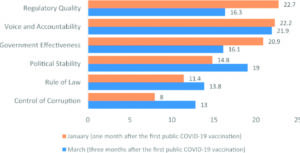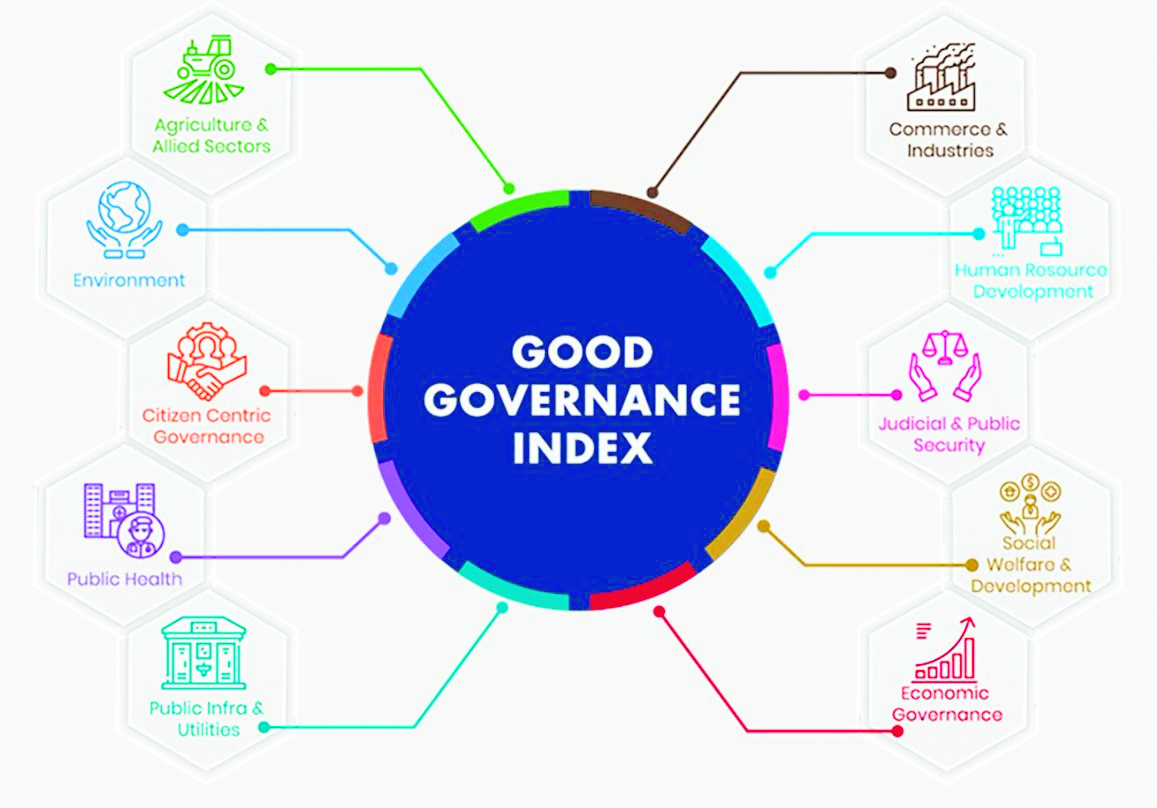Every year, in honour of former Indian Prime Minister Atal Vihari Vajpayee’s birthday, India observes “Good Governance Day”.
The day is devoted to former prime minister Atal Vihari Vajpayee. Prime Minister Narendra Modi 2014 announced that “Good Governance Day” will be observed annually on December 25 in memory of the former PM.
The Indian government decided that every year December 25 would be a full day of work. The government has been commemorating Good Governance Day every year since 2014. The day is celebrated to t make sure that the country’s residents are treated fairly by the government and they receive the advantages of various government services.
The purpose of Good Governance Day is to increase public access to various government programmes and services via good governance. It was established with the slogan “Good Governance through e-Governance.”
Prime Minister Narendra Modi on Monday paid tributes to former prime minister Atal Bihari Vajpayee on his 99th birth anniversary, saying he worked to speed up the country’s development all his life. Modi, along with President Droupadi Murmu, her predecessor Ram Nath Kovind, Lok Sabha Speaker Om Birla, and several ministers, including Amit Shah, Rajnath Singh, Nirmala Sitharaman, Kiren Rijiju, Hardeep Singh Puri, and Arjun Ram Meghwal, paid tributes to the BJP stalwart at his memorial ‘Sadaiv Atal’ here.
Modi said on X, Vajpayee’s dedication and spirit of service to the country will be a source of inspiration during the ‘Amrit Kaal’ — the period until the centenary of India’s Independence in 2047.

A great orator, Vajpayee was the popular face of the Bharatiya Jana Sangh and then the Bharatiya Janata Party. His acceptability beyond ideological boundaries was a key reason behind the BJP drawing support from many parties as he ran a successful coalition government from 1999 to 2004. Atal Vihari Vajpayee, the former prime minister was born on December 25, 1924, in Gwalior, Madhya Pradesh. He was elected three times as the nation’s prime minister. In 1996, he was elected as the nation’s Prime Minister for the first time. In 1998–1999, he was elected prime minister for a second term. On October 13, 1999, he was elected as the nation’s prime minister for the third time. Significantly, former prime minister Atal Vihari Vajpayee was the first head of state to address the UN in Hindi. The “Bharat Ratna” award was given to him on March 27, 2015.
WHAT IS GOOD GOVERNANCE?
Governance is the process of decision-making and the process by which decisions are implemented (or not implemented).
Governance can be used in several contexts such as corporate governance, international governance, national governance and local governance.
Good Governance is defined as “the manner in which power is exercised in the management of a country’s economic and social resources for development”
The concept of good governance existed even during the days of Chanakya. He had mentioned it elaborately in Arthashastra.
Citizens centric administration lies on the foundation of good governance.
PRINCIPLES OF GOOD GOVERNANCE
Consensus Oriented:
Decision-making oriented towards consensus ensures that, while not everyone may fully attain their desired outcomes, a mutually agreed-upon minimum can be reached, ensuring no harm to any party involved. This approach mediates conflicting interests to establish a broad consensus that aligns with the community’s best interests.
Equity and Inclusiveness:
Equitable society is ensured through good governance, providing individuals with opportunities to enhance or sustain their well-being.
Participation:
Citizens should have the ability to express their opinions through legitimate and immediate organizations or representatives, encompassing men and women, vulnerable segments of society, backward classes, minorities, etc. Participation also involves the freedom of association and expression.
Rule of Law:
Legal framework should be enforced impartially, especially on human rights laws. Without rule of law, politics will follow the principle of matsya nyaya i.e. the law of fish which means the strong will prevail over the weak.
Effectiveness and Efficiency:
Processes and institutions should be able to produce results that meet the needs of their community. Resources of the community should be used effectively for the maximum output.
Accountability:
Good governance aims towards betterment of people, and this cannot take place without the government being accountable to the people. Governmental institutions, private sectors, and civil society organizations should be held accountable to the public and institutional stakeholders.
Transparency:
Information should be accessible to the public and should be understandable and monitored. It also means free media and access to information.
Responsiveness:
Institutions and processes should serve all stakeholders in a reasonable period of time.
CHALLENGES TO GOOD GOVERNANCE IN INDIA
Centralisation of Administrative System:
Efficient functioning of lower-level governments depends on their empowerment. This is especially crucial for Panchayati Raj Institutions (PRIs), which currently face challenges due to insufficient devolution of funds and lack of functionaries to execute the functions constitutionally designated to them.
Criminalisation of Politics:
The criminalisation of the political process and the unholy nexus between politicians, civil servants, and business houses are having a baneful influence on public policy formulation and governance.
Women Empowerment:
Women are not adequately represented in government institutions, and other allied sectors.
Corruption:
The high level of corruption in India has been widely perceived as a major obstacle in improving the quality of governance.
Delay in Justice:
Every citizen has the right to timely justice, but various factors hinder a common person from receiving it promptly. One such factor is the insufficient availability of personnel and logistics within the court system.
INITIATIVES TO IMPROVE GOOD GOVERNANCE
Good Governance Index (GGI):
GGI has been launched by the Ministry of Personnel, Public Grievances & Pensions to determine the status of governance in the country.
It assesses the impact of various interventions taken up by the State Government and UTs.
National e-Governance Plan:
It has the vision to “make all government services accessible to the common man in his locality, through common service delivery outlets and ensure efficiency, transparency & reliability of such services at affordable costs to realise the basic needs of the common man.”
Right to Information Act, 2005:
It plays an effective role in ensuring transparency in governance.
Other Initiatives: Setting up of NITI Aayog, Make in India programme, Lokpal, etc.
WHO WAS ATAL BIHARI VAJPAYEE?
Atal Bihari Vajpayee was born on December 25, 1924, in the former princely state of Gwalior, now part of Madhya Pradesh. He entered national politics during the Quit India Movement of 1942, which expedited the end of British colonial rule.
In 1947, Vajpayee commenced his career as a journalist for newspapers associated with Deendayal Upadhyaya—Rashtradharma (a Hindi monthly), Panchjanya (a Hindi weekly), and the dailies Swadesh and Veer Arjun. Influenced by Syama Prasad Mookerjee, Vajpayee joined the Bharatiya Jana Sangh in 1951. He served as the Prime Minister of India, being elected to the position twice in 1996 and 1999.
As a parliamentarian, Vajpayee received the Pandit Govind Ballabh Pant Award for Best Parliamentarian in 1994, earning him recognition as “a role model par excellence for all legislators.”
In 2015, he was honoured with the country’s highest civilian award, the Bharat Ratna, and in 1994, he received the second-highest civilian honour, the Padma Vibhushan.







